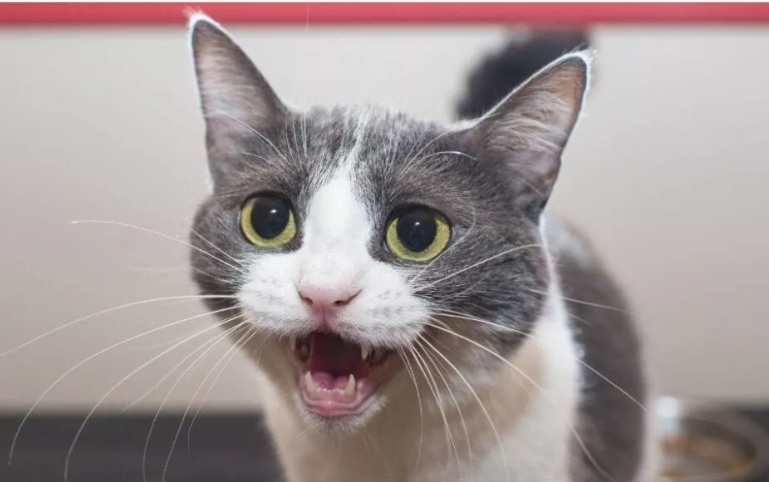WHY ARE SOME CATS SO TALKATIVE?

It may be four in the morning or a few minutes before dinner, and your cat won’t stop talking. Between the meowing, chirping, and chattering, it can be hard to keep up with your part of the conversation. Chatty cats love to communicate with their humans. They are far from shy, and you begin to realize that constant chatter is not quite average. Not all cats behave as if they like to hear their voices. A chatty cat is not abnormal, but it does say a lot about your cat’s personality, behavior, and perhaps even health.
If you’re used to listening to your cat meow, have you ever wondered why she does it? Here are some explanations as to why some cats talk more than others.
They demand attention
One of the most common reasons cats meow is because they want attention. This attention can be in the form of a gentle head scratch or (more often) an express request for a human to give their food bowl the attention it deserves. Cats quickly learn that humans are easily manipulated. If their meowing has helped fill their food bowl once in the past, they will repeat that trick again and again. The same is true when they want to be petted on the head or buttocks.
By responding to our chatty cats, we unwittingly reinforce their behavior. And the more we respond, the more they talk to get what they want. If you’re not a fan of your cat’s attention-seeking meowing, you can try to reverse this behavior by ignoring her chatter. Give her food and affection only when she’s quiet.
Your cat may be bored or sad
Even if your chatty cat isn’t explicitly meowing for attention, increased vocalization may be a sign that she’s bored, lonely, or depressed. Some cats express these feelings with low, plaintive meows, yowls, and sometimes growls. They may not think these sounds will get your attention and end their boredom. Instead, they do it out of anxiety and stress.
You can help your cat by providing more opportunities for interaction. Set aside time each day to focus solely on your cat. As your cat becomes more content, you may notice that she is less talkative.
This could be a sign of illness or injury.
Pay close attention to the tone of your cat’s vocalizations. If she sounds distressed, her vocalizing behavior could be a cry for help. Felines are usually stoic and quiet when it comes to their health, but not always. If we’re lucky, our cats use their voices to tell us that something is wrong. The hard part is figuring out what they are saying.
If your cat suddenly starts meowing or barking more often, she may be in physical pain or mental distress. This could be due to illness, injury, or age-related decline in cognitive function. Some cats become very vocal if they lose their hearing or vision. It can also be due to joint pain or mental confusion.
Talking is part of its personality
If your cat is getting lots of attention, has a full bowl of food, and is perfectly healthy, she may be talking just because she wants to. All of our feline friends have unique personalities. Being especially talkative could be one of your cat’s little quirks.
Talkativeness is more common in some breeds of cats than in others. Siamese, Bengals, and Maine Coons, for example, love to talk. They meow when they want something, but they also make noise for no reason. They want to talk, so they do! For a list of the most talkative cat breeds, click here.
Meowing is your cat’s way of communicating with you and the rest of the humans in the house. They no longer meow to other cats once they’re past kittenhood, so you can feel very special when your cat starts a conversation. Having your cat talk to you is not a bad thing, but it is understandably frustrating when she decides to have an in-depth conversation at 3 a.m. Reinforcing a different behavior, giving plenty of attention (during normal waking hours) and regular visits to the vet can help. Otherwise, appreciate the fact that your cat considers you worthy of conversation.








